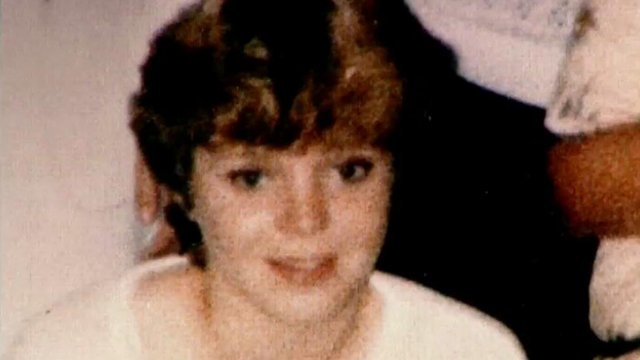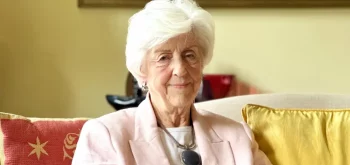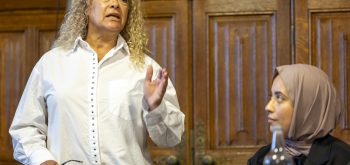There is no longer any credible doubt that the Cardiff Five are innocent, but they always were, writes Satish Sekar.
- Satish Sekar is a journalist who has specialised since the 1990s in investigating miscarriages of justice. He is the author of The Cardiff Five: Innocent beyond any doubt which is published by the Waterside Press (‘One of the most important books ever written about criminal justice,’ Michael Mansfield QC) – see HERE.
- Satish uses ‘Cardiff Five’ rather than ‘Cardiff Three’ because (he explains) ‘John and Ronnie Actie are no less innocent than Yusef Abdullahi, Stephen Miller and Tony Paris.’
- This essay appears in No defence: miscarriages of justice and lawyers which is that latest publication in the Justice Gap series and follows on from Wrongly Accused: who is responsible for investigating miscarriages of justice? (published in association with Solicitors Journal and Wilmington shortly).
- You can download Wrongly Accused HERE. Contributors for No Defenceinclude Eric Allison; Dr Ros Burnett; Prof Ed Cape; Dr Dennis Eady; Francis FitzGibbon QC; Mark George QC; Andrew Green; Campbell Malone; Michael Mansfield QC; Mark Newby; Daniel Newman; Paul May; Dr Angus Nurse; Correna Platt; Julie Price; Dr Hannah Quirk; David Rose; Adam Sampson; Satish Sekar; and Tom Wainwright. Thanks to all. You can download that collection below.
It should not have required the conviction of the real murderer of Lynette White to convince anyone. Any objective review of the evidence should have led inexorably to that conclusion. As with other miscarriage of justice cases, the evidence and common sense ought to have prevented not only wrongful convictions, but the wrongful arrests too.
The murder of Lynette White is a tawdry tale of a vicious killing that involved excessive brutality – far beyond what was needed to kill – and the investigation and trials that followed of justice betrayed. It is now established as one of the most notorious and easily preventable miscarriages of justice in British history.
An extraordinary tale began in the early hours of Valentine’s Day 1988 with what was then the most brutal murder of its type in Welsh history – over 50 stab wounds – with obvious sexual overtones to it. After 10 months the original inquiry revealed a closed mind that focused on obviously innocent men. Forensic science proved the police’s scenario that five men and at least two alleged eyewitnesses were in that room along with the victim was quite frankly ludicrous.
This became an egregious miscarriage of justice, but it ought to have been impossible. The quality of the evidence gathered against the five men who eventually stood trial was woeful to put it mildly.
It was a case that required an extraordinary suspension of disbelief from several professionals, especially lawyers who should have known better, but there is nothing in that story that does not occur routinely in other cases. It is the combination of what has gone wrong that is incredible.
Equally unbelievable is the failure of the criminal justice system to halt a plainly inappropriate prosecution in its tracks and hold those who failed the public accountable.
It is well known that Stephen Miller was ‘bullied and hectored’ by police in interviews that breached his rights shamefully. Miller was shouted down until he accepted the police’s version of Lynette’s murder – a scientifically ludicrous scenario that produced an utterly false confession. Miller was an extremely vulnerable person. He was highly suggestible and of below average intelligence. He was very susceptible to bullying and held to an absurd standard by David Elfer QC – a standard that required accepting everything put to him to meet Elfer’s definition of suggestibility. Dr Gisli Gudjonsson, the acknowledged leader in his field, understood the extent of Miller’s vulnerability to making a false confession. Sadly Elfer did not and, even more worryingly, nor did Miller’s defence lawyers for his trial and retrial. Their failures contributed in no small measure to an awful miscarriage of justice.
Miller’s solicitor Graham Dobson used a local solicitor Geraint Richards to represent Miller in the interviews. His presence was a hindrance as legally Miller had been represented. Richards failed to intervene while Miller was interviewed in a manner that breached the protections of the Police and Criminal Evidence Act (PACE). Miller was represented ably at the first trial by Anthony Evans QC, who presented the same arguments on oppression that Michael Mansfield QC argued successfully on appeal in December 1992. Evans found the trial judge Mr Justice McNeill, who died before the first trial ended, in intransigent mood. Had McNeill ruled as he should have done this case would have been thrown out in 1989. Instead it continued without criticism of McNeill being made by the appeal judges.
Why? Judges must understand the law regarding oppression. McNeill’s decision on the admissibility of Miller’s confession was quite simply wrong. The Court of Appeal, headed by then Lord Chief Justice Lord Taylor, was horrified by the same interviews that McNeill found admissible. He had heard the worst bullying and concluded that it was admissible. He was wrong and so was the Court of Appeal in failing to highlight his flawed judgement on that issue – one that contributed to making this miscarriage of justice all but inevitable.
Evans was unavailable for the second trial. That almost concluded Miller’s wretched luck. Roger Frisby QC failed to argue that Miller had been oppressed in a case that is now one of the standard texts on oppression in a police station. The ‘confession’ was in. The new trial judge Sir John Leonard QC could have used his discretion under Section 78 of PACE to exclude it, but the exercise of that discretion is rare and Leonard didn’t apply it. The jury heard the confession, but were deprived of the context and understanding of what could induce an innocent man to sign away his future for the shortest of gains and the most paltry reward – an end to the interviewing. His confession, which he retracted had the terrible consequence of convicting his co-defendants Abdullahi and Paris, despite compelling evidence of innocence.
But there was more. Miller’s lawyers missed the significance of evidence that all but proved Miller innocent and was available for his trial. Languishing in the unused material was statements by Debbie Actie and Robyn Reed. The young women had seen Miller playing pool shortly after the Crown say Lynette was murdered. Those claims were never retracted. There were trainer-prints, hairs, finger-prints, fibres and plenty of blood-staining – both that of the killer and of course Lynette’s.
This meant that if Miller was guilty he would have had to have removed all traces of the scientific evidence that tied him to the flat and victim without showing any attempt to interfere with it. He would then have had to clean himself and his clothes so thoroughly that not a speck of blood remained, but without interfering with the dirt on the white parts of his stone-washed jeans. He then had to go across the road to a nightclub and play pool without a change in general demeanour. He had to achieve all this within 20 minutes of the murder and as his lawyers knew with the IQ of an 11-year-old child. The prosecution case against Miller should have been laughed out of court – literally – but it was never contradicted as vigorously as it should have been. The poor performance of Miller’s solicitors and Roger Frisby QC have never been investigated, let alone censured.
Abdullahi had a strong alibi. It was treated not as a possible indicator of innocence, but as a guide to what the prosecution had to be undermine. It was in short seen as nothing more than an inconvenience. Disclosure obligations were even used to bluff the defence into not calling a witness the CPS and Crown must have known supported Abdullahi’s innocence. And Paris too had an alibi that common sense verified and the sole corroboration against him was a prison informer whose story stretched credibility to absurd lengths. Ian Massey had been looking for a deal a month earlier. He didn’t care who would have to pay for his ticket to a reduced sentence. Massey was Massey, trying his luck. He tried claiming that he had information on a notorious double murder before Paris had even been arrested, but this information was kept from Paris’ lawyers. Dyfed-Powys Police were not so easily impressed with Massey. They rejected Massey’s overtures on that case – it was eventually solved with the jailing for life of John Cooper, who also committed another double murder in that jurisdiction four years later.
There never was credible evidence to justify the arrests of the Cardiff Five and the more the police and Crown tried to shore up the case the more leaks sprung. Rather than review the case they had as the CPS was bound to do, only evidence assisting the prosecution was processed. Inconvenient evidence was marginalised at best. Instead of being thrown out as it should have been a palpably unreliable case resulted in convictions that disgrace every reasonable concept of justice, but it would be a mistake to blame just the police or defence lawyers for such an appalling prosecution. There is plenty of blame to go round and shamefully only one institution has held its hand up and accepted responsibility for its role in this travesty of justice – South Wales Police.
© Satish Sekar









